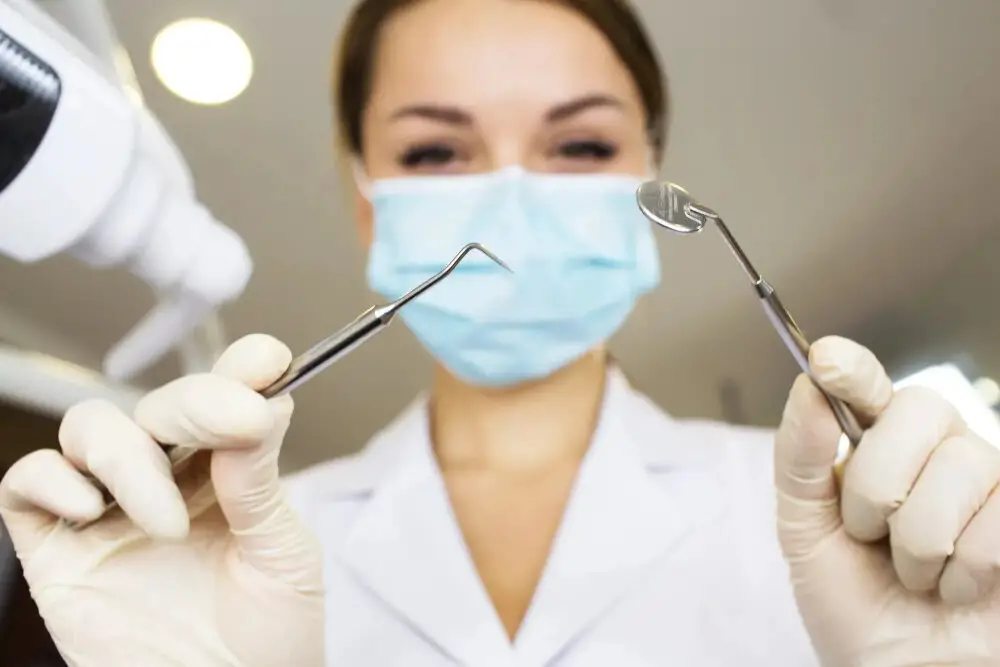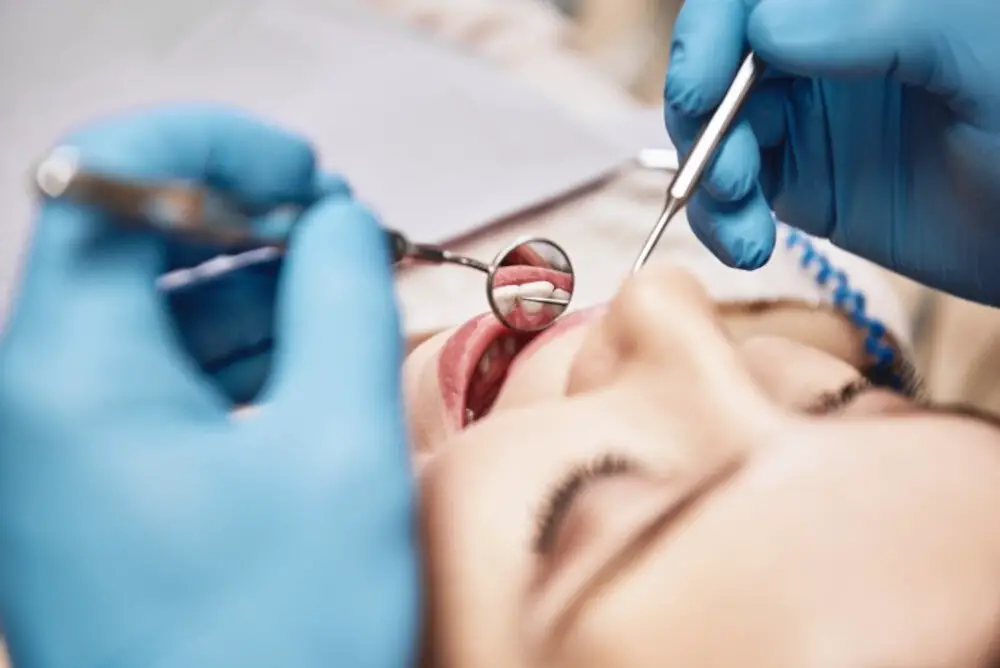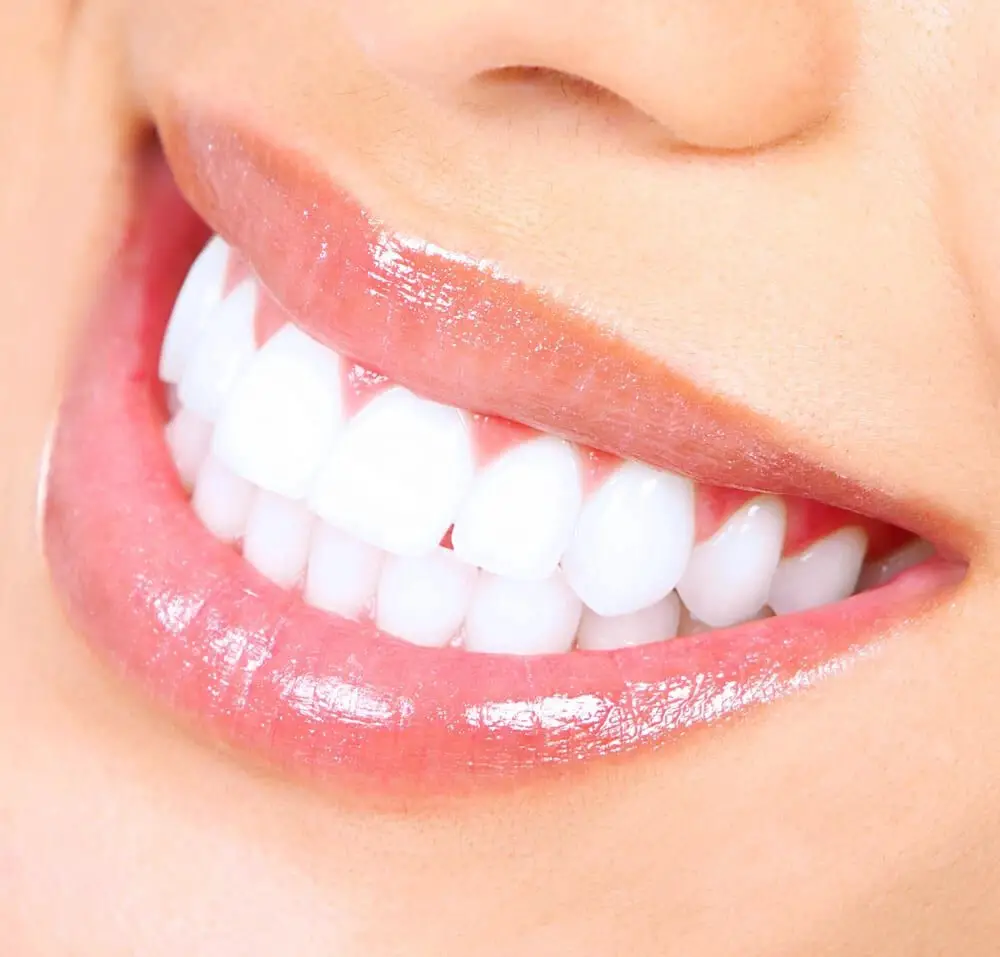Healing Time for Wisdom Teeth Holes: A Comprehensive Guide

Wisdom teeth, also known as third molars, are the last set of teeth to emerge in the back of the mouth. These teeth usually appear between the ages of 17 and 25 and can cause discomfort, pain, or infection. In some cases, the wisdom teeth don’t have enough space to grow properly, causing them to become impacted or only partially emerge. When this happens, the dentist may recommend the removal of the wisdom teeth, which can leave behind holes that require time to heal. Healing time for wisdom teeth holes can vary from person to person, and it’s essential to take proper care of the area to ensure a smooth and speedy recovery. The healing process for wisdom teeth holes can take anywhere from a few days to a few weeks, depending on various factors such as age, overall health, and the extent of the extraction. During this time, it’s crucial to follow your dentist’s post-operative instructions, such as keeping the area clean and free of debris, avoiding smoking and drinking through a straw, and sticking to a soft-food diet. Failure to follow these instructions can lead to complications such as dry socket, infection, and delayed healing. By understanding the healing process and taking the necessary steps to promote healing, you can ensure a quick and successful recovery after wisdom teeth extraction.
Wisdom teeth, also known as third molars, are the last set of teeth to erupt in the back of the mouth, usually in the late teens or early twenties. However, due to the lack of space, they often grow at an angle or only partially emerge, causing pain, infection, or damage to surrounding teeth. In such cases, dentists recommend wisdom teeth extraction, a surgical procedure that involves removing the teeth. Healing time for wisdom teeth holes is important as it allows the body to recover from the trauma caused by the extraction. The healing process takes several weeks, during which the body forms a blood clot to protect the extraction site, new bone tissue grows to fill the hole, and the gum tissue heals over the area. Adequate healing time helps to prevent complications such as dry socket, infection, or delayed healing. Therefore, it is essential to follow proper aftercare instructions, such as avoiding solid foods, using ice packs, and taking prescribed medications, to ensure a smooth and successful recovery.
What to Expect Immediately After Wisdom Teeth Extraction

Wisdom teeth extraction is a common dental procedure that is done to remove the third molars that usually grow in the late teenage years or early adulthood. After the surgery, it is normal to experience some discomfort and swelling around the extraction site. Immediately after the procedure, the patient will be taken to a recovery area where they will be monitored for a short time. They may feel groggy and disoriented due to the effects of anesthesia, but this will wear off within a few hours. The dentist will provide the patient with gauze to bite down on to help control bleeding and promote clotting. The patient should change the gauze every hour and replace it with a fresh one until the bleeding stops. They should also avoid spitting, rinsing, or drinking through a straw for the first 24 hours to prevent dislodging the blood clot. The patient may experience some pain, swelling, and discomfort immediately after wisdom teeth extraction. It is normal to have some bleeding from the extraction site for the first few hours, but this should subside. The dentist may prescribe pain medication to help manage the pain, and the patient should take it as directed. They should also apply an ice pack to the affected area for 20 minutes on and 20 minutes off for the first 24 hours to help reduce swelling. It is essential to follow the dentist’s post-operative instructions carefully to ensure a smooth and speedy recovery. The patient should also eat soft foods and avoid smoking or using tobacco products for at least 24 hours after the surgery. With proper care and attention, the patient should be able to heal fully within a few weeks.
After undergoing wisdom teeth extraction surgery, it is common to experience several postoperative symptoms such as bleeding, swelling, and pain. Bleeding from the surgical site can continue for the first 24 hours after the procedure and may be accompanied by a slight oozing of blood for a few days following. Swelling is also normal and may peak at around the third day, but should gradually subside over the following week with the help of ice packs and anti-inflammatory medication. Pain can vary in intensity and duration depending on the individual, but typically lasts for several days after the surgery and can be managed with painkillers prescribed by the dentist or surgeon. It is important to follow postoperative care instructions to ensure proper healing and minimize discomfort.
Managing symptoms after wisdom teeth extraction can be challenging, but there are several tips that can help alleviate discomfort and promote healing. Firstly, it is essential to follow your dentist’s instructions carefully, including taking any prescribed pain medication and antibiotics. Applying an ice pack to the affected area for the first 48 hours can also reduce swelling and pain. It is recommended to avoid smoking, drinking through a straw, and eating hard or crunchy foods, as these can delay the healing process. Staying hydrated and eating soft, nutrient-rich foods can help speed up healing and reduce the risk of infection. Finally, maintaining excellent oral hygiene, including gentle brushing and rinsing with saltwater, can help prevent complications and promote a smooth recovery.
The First Week of Healing

The first week of healing after wisdom teeth extraction is crucial for proper recovery. It is normal to experience some discomfort, swelling, and bleeding during this time. The first 24 hours are the most critical, and it is important to follow the dentist’s instructions carefully. Most dentists recommend using ice packs for the first 24 hours to minimize swelling. After that, warm compresses can be used to promote healing and alleviate pain. During the first week, it is important to avoid anything that could potentially disrupt the healing process. This includes smoking, drinking through a straw, and consuming hard or chewy foods. It is recommended to stick to soft foods such as mashed potatoes, soup, and scrambled eggs. It is also important to maintain good oral hygiene by gently brushing the teeth near the extraction site and rinsing with saltwater. Following these guidelines can help ensure a smooth and successful recovery during the critical first week of healing after wisdom teeth extraction.
The healing process during the first week after wisdom teeth removal is crucial and requires proper care to avoid any complications. Immediately after the extraction, blood clots form in the sockets to protect the underlying bone and nerves. Within the first 24 hours, swelling, pain, and bleeding may occur, but they should gradually decrease over the next few days. The formation of granulation tissue and the regeneration of bone and gum tissue begins during the first week. It’s essential to maintain good oral hygiene, avoid smoking, and follow the dentist’s instructions to prevent infection and promote healing. A soft food diet and gentle brushing should be followed to avoid dislodging the blood clot and damaging the healing tissues.
After the removal of wisdom teeth, proper care of the holes left behind is crucial for a speedy and successful recovery. One of the most effective ways to care for these holes is by rinsing your mouth with salt water. This helps to cleanse the area, reduce swelling and speed up the healing process. It is also important to avoid certain foods that can irritate or damage the holes, such as crunchy or hard foods, spicy or acidic foods and alcohol. By following these tips and maintaining good oral hygiene, you can ensure that your wisdom teeth holes heal properly and quickly.
The Second Week of Healing

The second week of healing after wisdom teeth extraction is crucial, as it is the time when the gums start to close, and the healing process intensifies. Patients may experience swelling and pain during this period, and it’s essential to continue following the aftercare instructions provided by the dentist to promote healing. During this week, patients should avoid smoking, drinking through a straw, and consuming hard or crunchy foods that may disturb the healing process. Soft foods such as mashed potatoes, oatmeal, and soup can help to promote healing and reduce discomfort. It’s common for patients to experience some discomfort and swelling during the second week of healing, but if the pain becomes severe or is accompanied by fever, it’s recommended to consult the dentist immediately. Patients should also continue to rinse their mouth with saltwater regularly to keep the area clean and free of bacteria. As the gums continue to heal, patients should avoid brushing the area directly and instead use a gentle, circular motion around the extraction site to prevent irritation. By following these guidelines, patients can ensure a smooth and successful healing process after wisdom teeth extraction.
During the second week of the healing process for wisdom teeth holes, the body continues to work towards closing the wound. The initial inflammation and swelling that occurred in the first week start to subside, and the blood clot that formed at the extraction site begins to transform into granulation tissue. The granulation tissue is made up of new blood vessels, connective tissue, and cells that help to heal the wound. As the tissue grows, it covers the exposed bone and nerve endings, reducing the sensitivity and pain in the area. The body also starts to produce new bone tissue to fill in the space left by the extracted tooth. Patients should continue to follow their aftercare instructions, including regular saltwater rinses and avoiding hard or crunchy foods, to promote proper healing during this crucial second week.
Proper care of wisdom teeth holes is crucial to ensure a speedy and smooth recovery. One of the most effective ways to promote healing is by rinsing the mouth with salt water regularly. This helps to keep the area clean and free of bacteria, reducing the risk of infection. Gradually introducing harder foods such as cooked vegetables and fruits can also aid in the healing process. It’s essential to avoid eating tough or sticky foods that could damage the wound or dislodge the blood clot. Additionally, maintaining good oral hygiene by brushing and flossing gently around the area can help to prevent complications and promote faster healing. By following these tips, patients can ensure proper care of their wisdom teeth holes and achieve a speedy recovery.
LongTerm Healing and Maintenance

Long-term healing and maintenance play a crucial role in ensuring the complete recovery of wisdom teeth holes. After the initial healing phase, which usually takes around two weeks, the focus should shift towards maintaining good oral hygiene habits and promoting healthy gum tissue growth. This is because the new gum tissue that forms over the extraction site is still delicate and susceptible to infection or irritation. Therefore, it’s important to avoid activities that can damage the gum tissue, such as smoking, using straws, or eating hard or crunchy foods. In addition to avoiding harmful activities, it’s also important to promote healthy gum tissue growth by practicing good oral hygiene. This includes brushing twice a day, flossing at least once a day, and rinsing with an antiseptic mouthwash. It’s also a good idea to schedule regular dental check-ups to ensure that the healing process is progressing as it should. By following these guidelines, patients can ensure that their wisdom teeth holes heal properly and that they maintain good oral health for years to come.
The long-term healing process after wisdom teeth extraction can take several weeks to several months, depending on the individual’s healing ability and the complexity of the procedure. During this time, it’s crucial to maintain proper oral hygiene to prevent infection and promote healing. This includes gently brushing the teeth twice a day, using a non-alcoholic mouthwash, and avoiding foods that can irritate the surgical site. Additionally, it’s essential to avoid smoking or using any tobacco products, as they can delay the healing process and increase the risk of infection. Regular follow-up appointments with the dentist or oral surgeon can also ensure that any complications are detected early and treated promptly, allowing for a smooth and successful recovery.
While healing time for wisdom teeth holes can take some time, it’s essential to maintain good oral health during this period. Regular brushing and flossing are the foundation for maintaining healthy teeth and gums. Brushing twice a day with a fluoride toothpaste helps to remove plaque and bacteria that can lead to tooth decay and gum disease. Flossing is equally important as it removes debris and food particles from between teeth and along the gum line. Additionally, scheduling regular dental checkups every six months allows your dentist to detect any oral health issues early and provide treatment before they become more severe. By following these tips, you’ll not only promote healing of wisdom teeth holes but also maintain good oral health for years to come.
The healing time for wisdom teeth holes is crucial for a successful recovery. This period can range from a few days to several weeks, depending on the individual’s healing process. It is essential to follow proper care instructions to promote healing and prevent infection. This includes keeping the area clean by gently rinsing with saltwater, avoiding hard or crunchy foods, and refraining from smoking or using straws. Pain and swelling can be managed with over-the-counter pain relievers and ice packs. It is also important to attend follow-up appointments with the dentist to ensure proper healing and address any concerns. Taking these precautions can promote a healthy recovery and prevent complications from arising.
Conclusion

In conclusion, healing time for wisdom teeth holes is a crucial aspect of the recovery process that requires proper attention and care. It is essential to understand the factors that can affect the healing time, such as age, overall health, and the complexity of the extraction. A comprehensive guide that includes tips and recommendations for a healthy and speedy recovery can help ensure a successful healing process. By following the guidelines, patients can minimize discomfort, reduce the risk of complications, and get back to their regular routines sooner. Remember that each individual’s healing process is unique, and it is crucial to consult with your dentist or oral surgeon if you have any concerns or questions regarding your recovery. With patience and proper care, you can successfully heal from wisdom teeth extraction and keep your oral health in check.







